Uncover your pup’s allergy risk. Find the answers.
Embark's Allergy Risk Scores reveal allergy risks written in your dog's DNA — so you can act early.
Get ahead of the itch

Embark is the only dog DNA test that screens for genetic allergy risks.
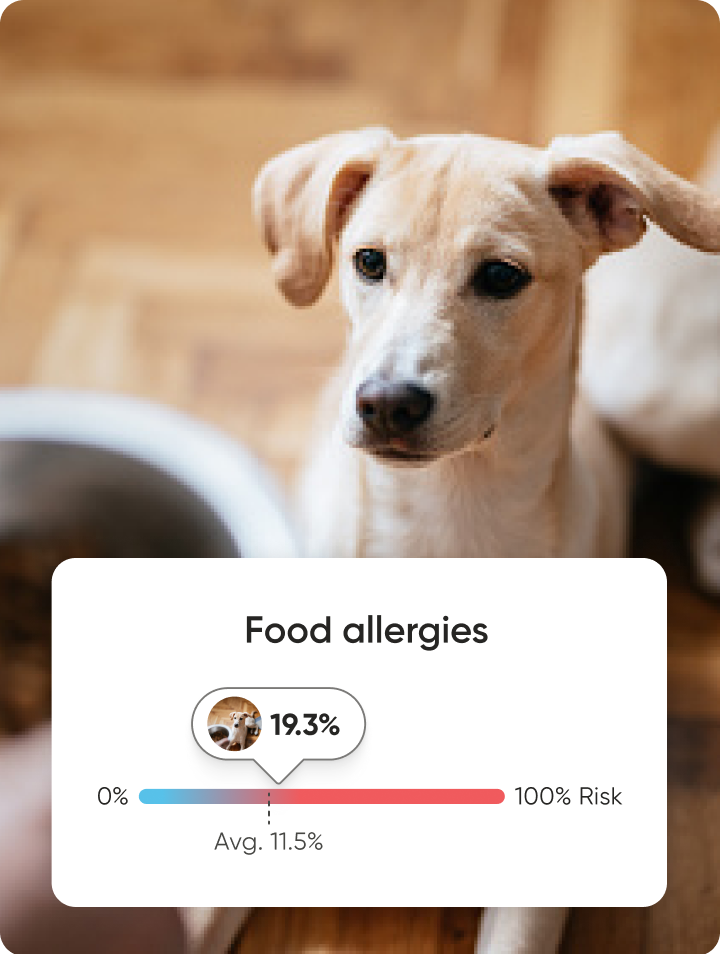
Food Allergy Risk
Uncover whether your dog’s DNA indicates a higher likelihood of reacting to common food ingredients, and pinpoint potential dietary sensitivities early.
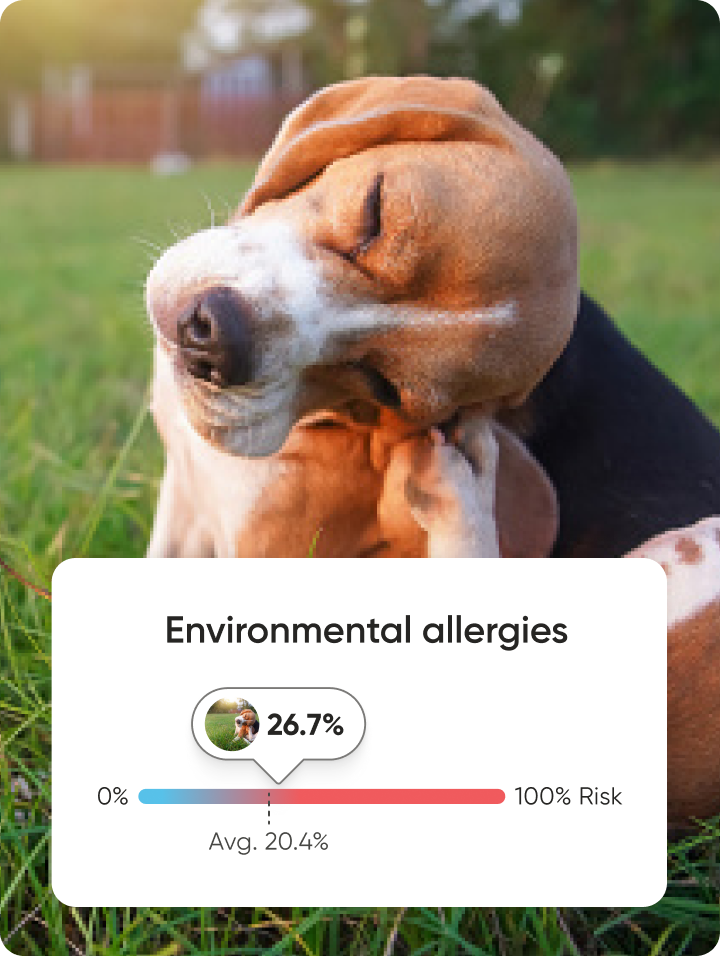
Environmental Allergy Risk
Learn if your dog is genetically more prone to skin allergies triggered by environmental factors like pollens, molds, or dust mites.
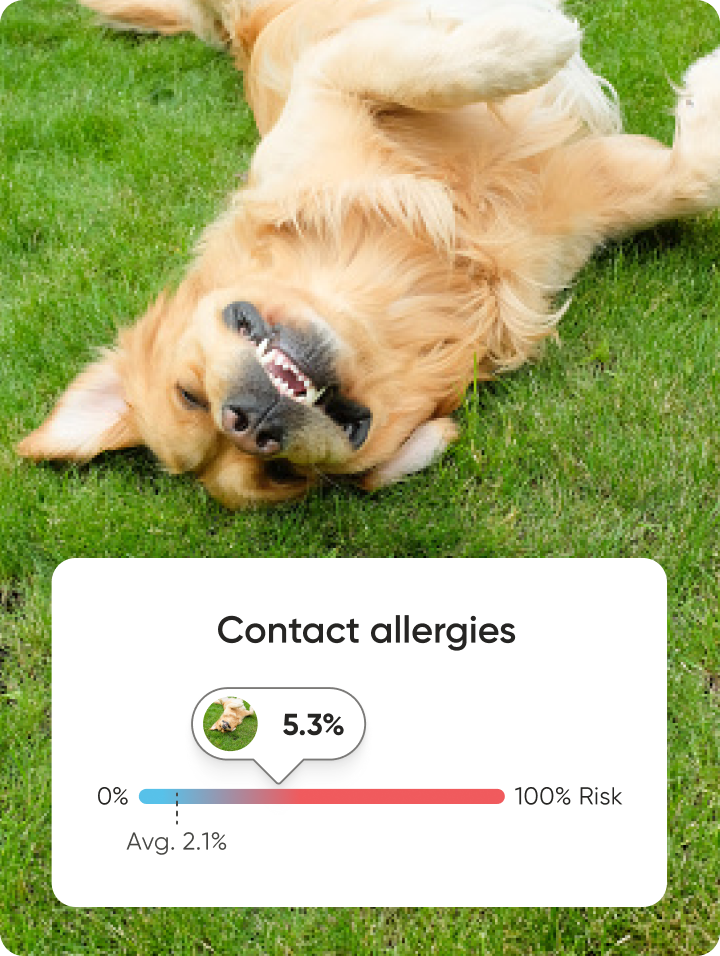
Contact Allergy Risk
Identify if your dog has a heightened genetic risk for skin irritation from everyday substances like shampoos, fabrics, or cleaning products.
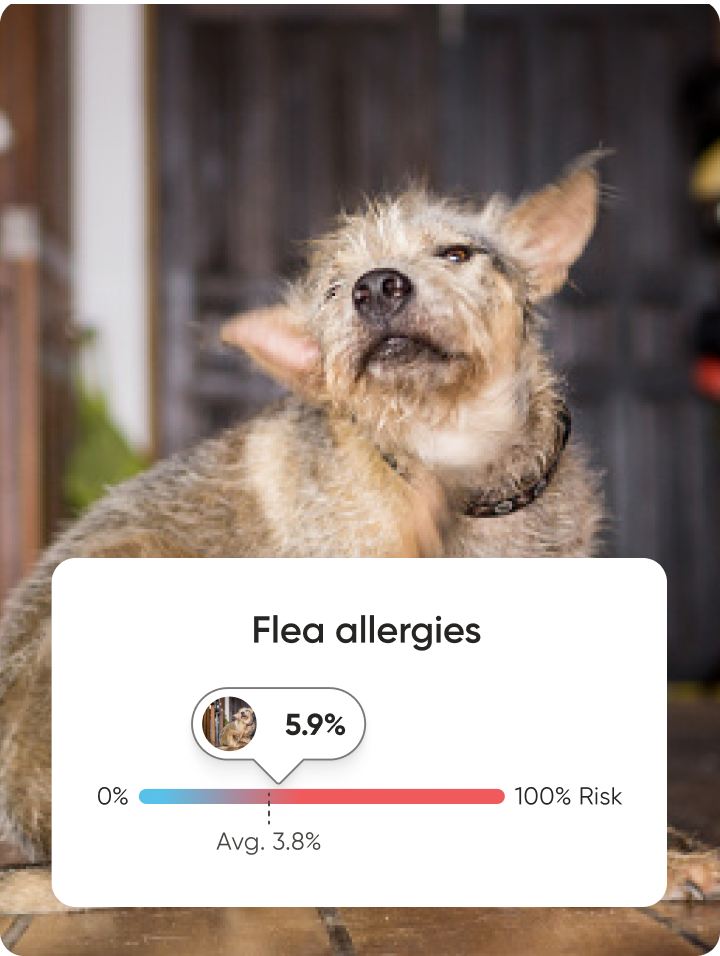
Flea Allergy Risk
Discover your dog's genetic susceptibility to developing an allergic reaction to flea bites, a common cause of intense itching and discomfort.
Personalized from snout to tail
A deeper understanding of your dog through DNA insights and more


24/7 veterinary care

All-natural supplements

Virtual training sessions

Personalized care recommendations
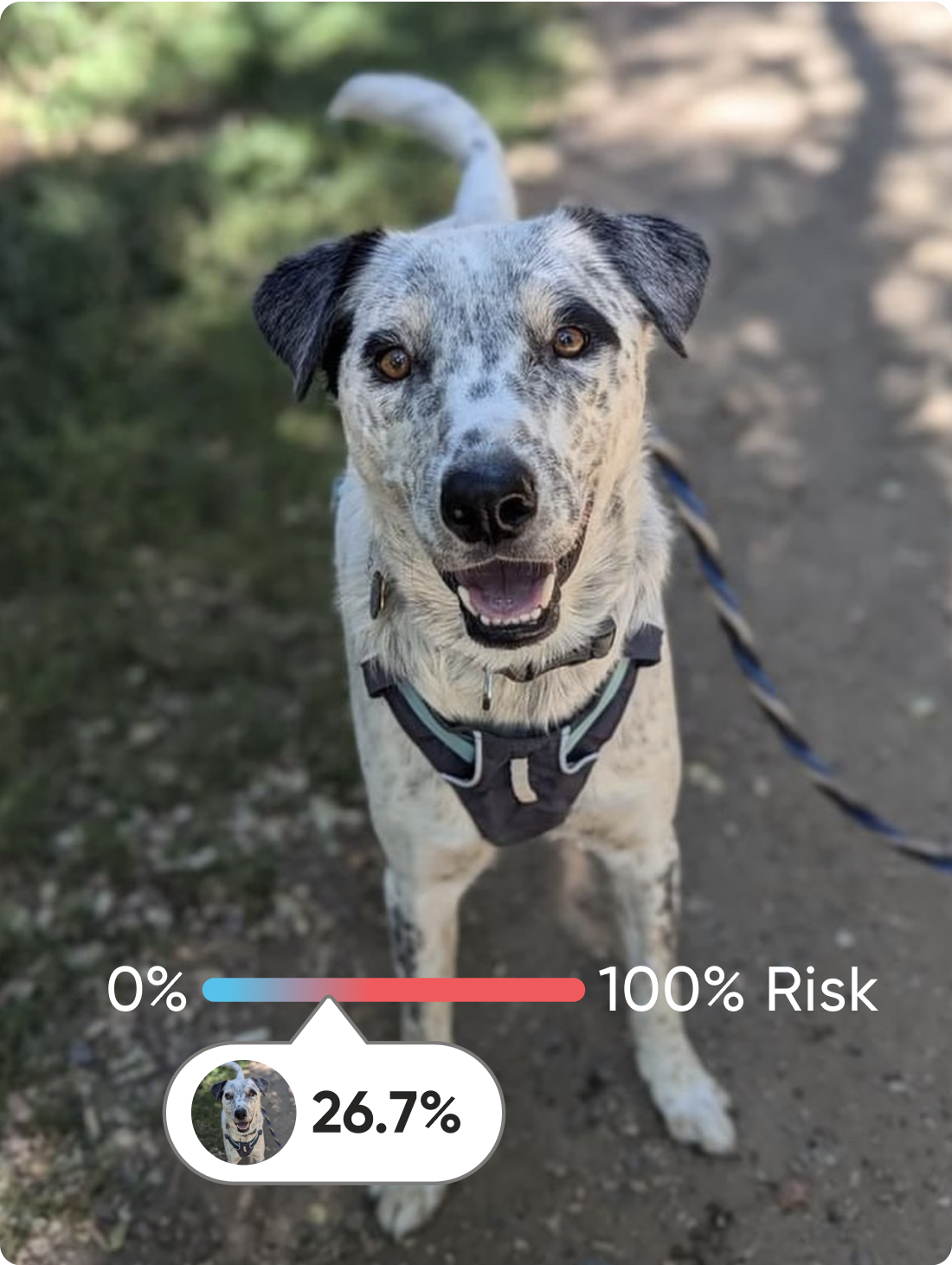

"Embark's allergy risk scores help us know which tests & treatments to focus on if symptoms develop, so your dog can feel better and stay comfortable."
Dr. Jenna Dockweiler, DVM, DACT
Veterinarian Geneticist
Hear what others are saying about their results
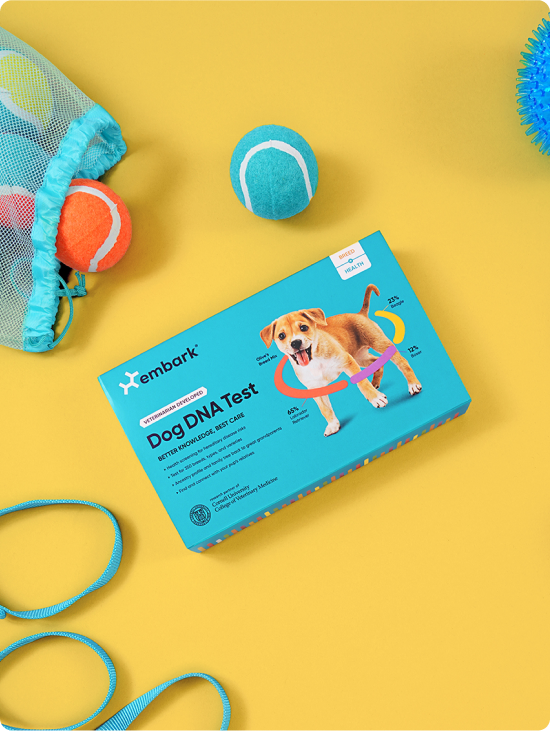
From Scratching to Solutions: It All Starts With a DNA Test

Only Embark includes vet-reviewed allergy risk insights personalized to your dog’s DNA.

Uncover your pet’s breed

Health Screening for 270+ genetic risks

50k+ 5-star reviews

One simple test, endless insights
FAQ's

Only Embark includes vet-reviewed allergy risk insights personalized to your dog’s DNA.
01
What does the Allergy Risk Score tell me?
The Allergy Risk Score (ARS) helps you understand your dog’s genetic likelihood of developing common types of allergies.
Using a mix of genetic data and real-world insights from dog owners, the ARS highlights your dog’s risk for food allergies, environmental triggers like pollen or dust, and flea-related reactions.
02
How do allergy risk scores work?
The Allergy Risk Score works by analyzing your dog's DNA for genetic markers associated with an increased risk for common types of allergies. We compare your dog's genetics to a large database of dogs with and without allergies to determine their individual risk level.
03
Are Allergy Risk Scores a diagnostic tool?
No, Allergy Risk Scores are not a diagnostic tool. They are designed to provide you with your dog's genetic risk for certain types of allergies so you can be proactive about their health.
04
Does this diagnose specific allergies like chicken or pollen?
No, the Allergy Risk Score does not diagnose specific allergies to individual substances like chicken or pollen. It identifies a dog's genetic risk for broader allergy categories such as food-related or environmental allergies, but not the specific triggers.
05
Can I use this instead of allergy testing at my vet?
No, this product should not be used as a substitute for veterinary allergy testing. The Allergy Risk Score is a proactive tool to understand your dog's genetic risk. If your dog is showing symptoms of allergies, it is important to consult with your veterinarian for proper diagnosis and a comprehensive treatment plan. The results can be a helpful starting point for a conversation with your vet.
06
How is the score calculated?
The score is calculated by comparing your dog's DNA to data from thousands of other dogs. The results are presented as a risk score (Typical or Increased Risk), a percentage risk (absolute risk), and a comparison of your dog's individual risk to the average dog.
07
Is this available for breeder accounts?
At this time, Allergy Risk Scores are not available through Embark for Breeders products. However, they are included with the purchase of a Breed + Health Kit or a Purebred Kit. We’re always working to expand our offerings, stay tuned for future updates.
08
Is this suitable for puppies or older dogs?
Yes, the Allergy Risk Score is suitable for dogs of all ages, from puppies to seniors. Since the test is based on a dog's DNA, their genetic risk for allergies can be determined at any point in their life.

Signs of Allergies in Dogs: Types and What to Look For

Like humans, dogs can have allergic reactions, too. The signs of allergies in dogs can vary broadly. At first glance, you might not know if your dog has seasonal allergies, food allergies, or something else.
Read more -->






